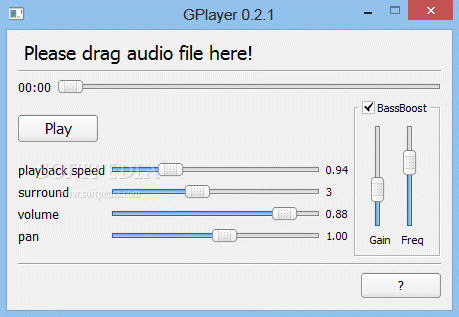GAudio Sound Library 2.1.0.8 Crack + Keygen Download
GAudio Sound Library is a cross-platform audio library for C, C++, and C# programming languages. It provides a flexible API for acquiring audio playback capabilities in media games and other software programs.
The audio package also includes an HTML file that shows useful hints about the compiling and linking process, GAudio API (name, description, return value, and errors for various parameters), as well as other handy tips.

Download GAudio Sound Library Crack
| Software developer |
GAudio Group
|
| Grade |
4.5
795
4.5
|
| Downloads count | 6355 |
| File size | < 1 MB |
| Systems | Windows All |
GAudio Sound Library gives you the possibility to make use of several important functions, such as encoding, decoding, effects, and drivers. Plus, you may enhance the supported parameters with the aid of plugins.
It writes the following audio formats: AU, AIFF, WAV, MP2, MP3, AAC, OGG, VOC, FLAC, and WV. Plugins can also be employed in order to extend the current playback file formats.
If you want to use GAudio Sound Library with a compiler, you should know it works with the following compilers/IDE: Microsoft Visual C/C++ 6.0 – 2012, GCC 3-4, Dev C++, Code::blocks, and C#.
There’s support for a wide range of sound effects, like fade in, fade out, data invert, channel merge, channel swap, bassboot, echo, modulator, speed changer, cross feed, Auto-wah, phaser, FFT, distortion, foldback, distortion, and 3D.
What’s more, you can play various file formats, such as AIFF, AU, WAV, MP3, OGG, MOD, XM, IT, S3M, and TTA. Basically, you can instruct the application to play a sound file, load it, and cache and/or stream sound data automatically. In addition, you are allowed to make use of multi-threading or single-threading actions, alter the aspect of a playing audio file, like panning, volume, and 3D position, as well as read data from your own file archives.
To sum things up, GAudio Sound Library Serial comes bundled with several handy tools for helping you work with an extensible API. The API is simple to decode and can be configured even by less experienced users.
